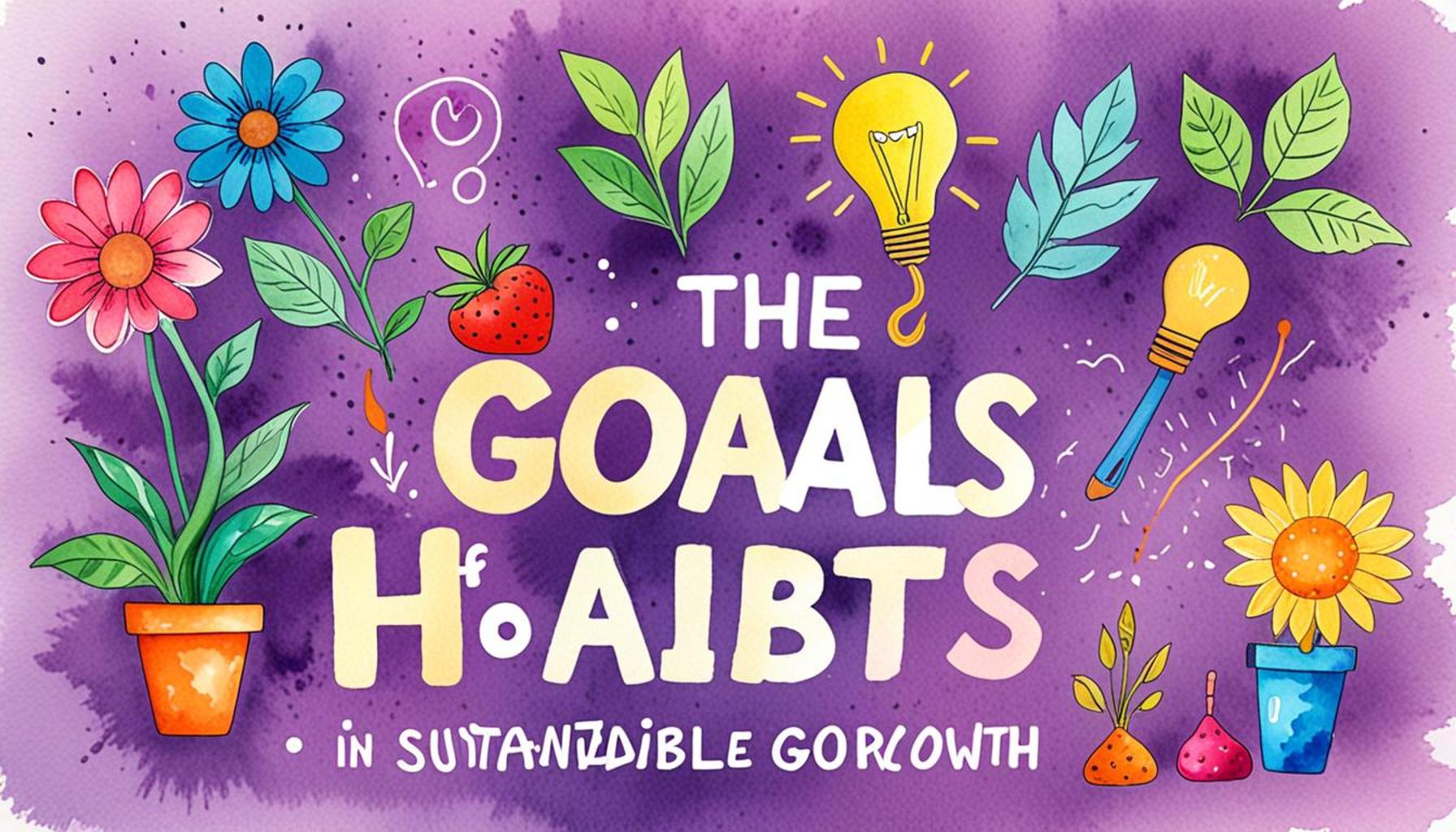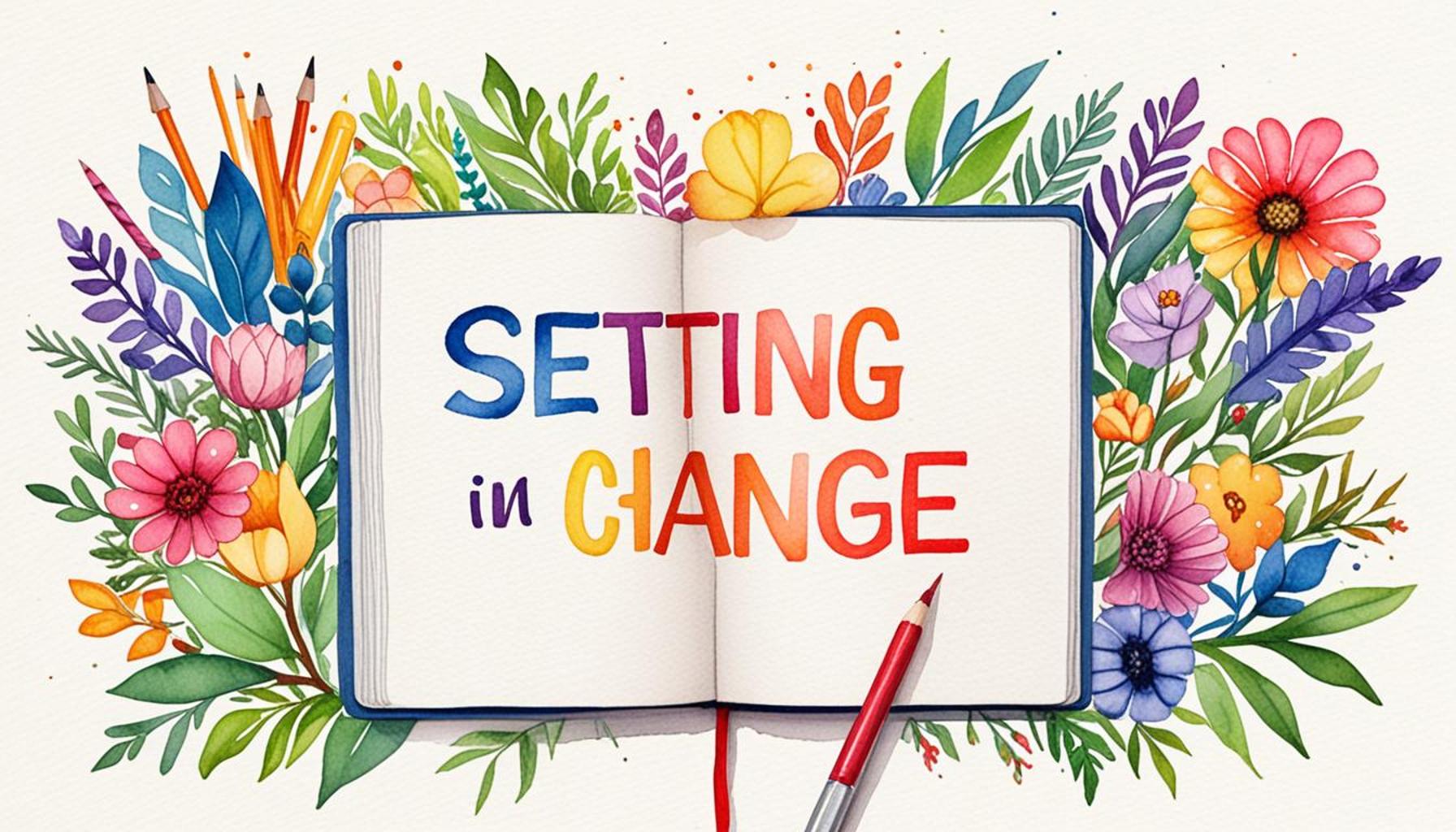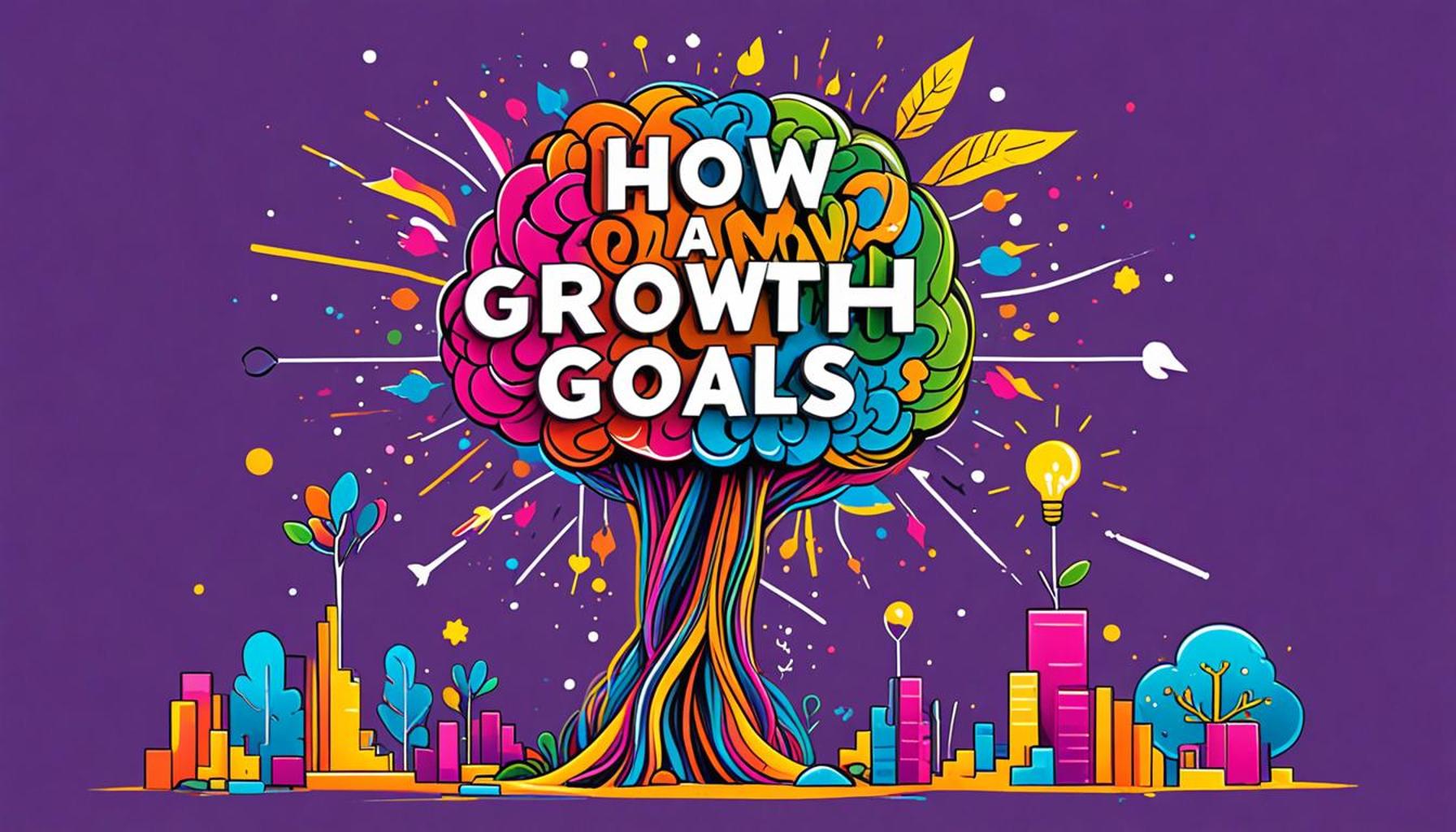The Role of Goals in Building Positive Habits: Developing a Sustainable Growth Mindset

Empowering Personal Growth through Goal Setting
In the vibrant landscape of Nigeria, where the drive for advancement and success is palpable, setting goals emerges as an indispensable tool for transforming aspirations into achievements. It is more than a mere motivational exercise; it serves as the foundation for building positive habits that can shape one’s future.
Establishing clear and attainable goals helps individuals move from vague wants to specific actions. For instance, a young entrepreneur may envision expanding their small business. By setting tangible goals like increasing sales by 20% over the next quarter or launching a new product line, they lay down a structured plan that directs their daily activities. This alignment of everyday actions with long-term objectives is crucial for sustainable success.
The Elements of Effective Goal Setting
To maximize the impact of goal setting, three core elements should be emphasized:
- Clarity: Clearly defined goals serve as a detailed roadmap, steering individuals toward their desired outcomes. This could involve writing down specific objectives, which not only clarifies intentions but also strengthens commitment.
- Accountability: Sharing goals with peers fosters a commitment that can be difficult to maintain alone. Whether it’s through community groups or family discussions, having someone to support and challenge you can enhance your determination to achieve those goals.
- Measurement: Tracking progress is essential for recognizing growth and identifying areas for improvement. This could involve setting monthly reviews to assess what strategies yielded results and what didn’t, leading to evidence-based adjustments in one’s approach.
From the perspective of positive habit formation, goal setting acts as a powerful catalyst for not only personal improvement but also broader community enhancement. In Nigerian society, where collective progress is often intertwined with individual success, the adoption of disciplined goal-setting practices can trigger a more productive and optimistic environment. For example, grassroots movements have demonstrated that when community members set shared goals, such as enhancing local literacy rates or improving healthcare access, the results can significantly uplift entire neighborhoods.
By exploring the intertwining paths of goal setting and habit building, individuals can uncover innovative strategies that facilitate their journey through challenges and seize opportunities along the way. The power of intentional objectives lies not just in achieving personal milestones but in fostering a cultural shift towards excellence, collaboration, and resilience. As one embarks on this transformative path, the possibilities for growth and achievement become as expansive as the aspirations that drive such endeavors.

ADDITIONAL INSIGHTS: Expand your understanding here
Building Blocks of a Growth Mindset through Goals
At the heart of cultivating a sustainable growth mindset lies the strategic practice of setting goals. This approach fosters not only personal reflection but also proactive engagement with life’s challenges. As individuals embark on their journey of improvement, the identification and implementation of clear goals serve as essential stepping stones. For instance, consider a student in Nigeria who aims to excel academically. By establishing specific targets, such as studying for two hours every evening or joining study groups, the student can convert those intentions into actionable habits.
Furthermore, the practice of goal setting can help individuals embrace the idea of lifelong learning. In a rapidly changing world, adaptability becomes crucial. By continuously setting and adjusting goals – whether they’re centered around enhancing skills, expanding professional networks, or improving personal well-being – individuals can create a dynamic self-improvement framework. This fluidity not only reinforces positive habits but also empowers individuals to handle setbacks and reframe their perspectives on failure.
The Brain-Goal Connection
Understanding the psychological impact of goal setting reveals its profound effects on brain function and habit formation. Neuroscientific studies indicate that when a person sets a goal, the brain activates specific areas that release dopamine, a neurotransmitter linked with motivation and reward. This means that achieving smaller goals can lead to a cycle of positive reinforcement, making it easier to establish new habits. For example, an entrepreneur in Lagos setting a goal to reach out to three potential clients per week can foster a sense of achievement that encourages continued outreach and relationship building.
To enhance the effectiveness of goals in nurturing a growth mindset and building positive habits, consider incorporating the following strategies:
- SMART Criteria: Set goals that are Specific, Measurable, Achievable, Relevant, and Time-bound. This clarity ensures that each goal has a clear endpoint, making them easier to track.
- Visualization Techniques: Utilize visualization as a tool to imagine achieving your goals. This mental rehearsal can instill confidence and commitment, allowing individuals to align their subconscious efforts with their conscious intentions.
- Celebrate Small Wins: Recognizing and rewarding progress, no matter how minor, reinforces positive habits and encourages individuals to keep pushing towards larger objectives.
By embracing these practices, individuals not only clarify their personal ambitions but also cultivate a robust framework for nurturing positive habits that align with their goals. In Nigeria’s evolving socio-economic landscape, this approach holds immense potential for driving both personal and communal transformation. The shift towards a growth mindset fueled by well-defined goals can lead to a surge of innovation, resilience, and collaborative spirit, ultimately sculpting a better future. As more individuals harness these principles, the ripple effect can profoundly impact communities, inspiring collective growth and empowerment.
| Advantage | Description |
|---|---|
| Clarity in Direction | Setting goals provides a clear roadmap, helping individuals focus their efforts and minimize distractions. |
| Increased Motivation | Goals serve as motivational tools, igniting passion and drive, essential for establishing positive habits that align with a growth mindset. |
Embracing the concept of goal-setting can transform one’s approach to personal development. Establishing specific, measurable, achievable, relevant, and time-bound (SMART) goals leads to a heightened sense of accomplishment as milestones are met. The act of breaking larger objectives into smaller, manageable tasks fosters a steady progression, which is crucial for reinforcing effective habits. Moreover, having clearly defined goals encourages self-reflection and adjustment of strategies when facing challenges. This adaptability is an essential component of a sustainable growth mindset, where learning from failures is not only accepted but embraced. Overall, the interplay between goal-setting and habit formation can pave the way for individuals to thrive in their personal and professional endeavors, continually fostering a cycle of success and resilience.
YOU MAY ALSO LIKE: Read read another article
Aligning Goals with Personal Values for Lasting Change
One of the key elements that contribute to the effectiveness of goal setting in fostering a growth mindset lies in the alignment of these goals with personal values. When goals resonate with what individuals truly value, it can lead to deeper motivation and engagement. For instance, consider a young professional in Nigeria who values education and community service. By setting a goal to mentor underprivileged students in their local area, they not only contribute positively to society but also experience personal growth and fulfillment.
This alignment ensures that the pursuit of goals is not merely a chore but a meaningful journey that nurtures resilience during challenging times. Those who embark on a goal with authentic intention are more likely to weather setbacks without losing their drive. Research indicates that individuals who set values-aligned goals report higher levels of satisfaction and persistence compared to those who focus on extrinsic rewards such as money or accolades.
Accountability and Community Support
The role of community and accountability in the journey of goal achievement cannot be overstated. In Nigeria, the practice of collaborating with peers or joining groups with similar aspirations can create a powerful support network. Engaging with others facilitates the sharing of experiences and strategies, fostering not just motivation but also a sense of belonging. For example, a group of entrepreneurs can come together to share their successes and challenges, honing their skills while holding each other accountable for their goals.
- Leverage Social Media: Platforms like Facebook and Instagram can serve as tools for accountability by allowing individuals to publicly share their goals. By posting progress updates, users can foster a sense of commitment, as their social circles will offer encouragement and feedback.
- Join Goal-Setting Workshops: Participating in workshops or local meet-ups dedicated to personal development can provide individuals with the resources and networking opportunities needed to stay accountable in the pursuit of their goals.
Additionally, establishing a reliable accountability partner can enhance focus and efficacy. Research shows that individuals who discuss their goals regularly with someone else are more likely to achieve them. In the dynamic Nigerian environment, where social connections are pivotal, aligning with another individual can create a synergistic effect that propels both parties forward.
Feedback and Reflection: The Continuous Loop
A growth mindset is characterized by a willingness to receive feedback and adapt accordingly. Regularly reviewing progress towards goals allows individuals to celebrate achievements and reassess objectives when necessary. This continuous cycle of feedback and introspection is vital in maintaining momentum. For instance, a professional in Lagos striving to improve their public speaking skills may record speeches and obtain constructive criticism from peers or mentors. Such reflective practice not only boosts confidence but also reveals areas of improvement that may be leveraged for future success.
By incorporating feedback mechanisms into the goal-setting process, individuals can transform criticism into a constructive tool for growth. Furthermore, this practice promotes adaptability, reinforcing the notion that challenges are indeed opportunities for learning.
In an era characterized by rapid changes and complexity, the intentional and thoughtful pursuit of well-defined goals stands as a cornerstone in building positive habits and nurturing a sustainable growth mindset. By aligning goals with personal values, fostering community support, and embracing feedback, individuals in Nigeria can draw on these frameworks to drive their personal and professional progress, ultimately shaping a brighter, innovative future.
ADDITIONAL INSIGHTS: Expand your understanding here
Conclusion: Harnessing the Power of Goals for Transformational Growth
In conclusion, the interplay between goal setting, positive habits, and a sustainable growth mindset is a profound journey that can lead to meaningful transformation for individuals, particularly in the vibrant and evolving context of Nigeria. By strategically aligning goals with personal values, individuals can cultivate a deeper sense of purpose that fuels their motivation and commitment, making every step toward advancement feel less like a burden and more like a calling.
The essence of community support cannot be overlooked. Engaging in collaborative networks, whether through local workshops or online platforms, reinforces accountability and fosters an encouraging environment where shared aspirations flourish. Each story of success and shared struggle not only builds resilience but also creates a tapestry of collective growth, essential for driving progress in a fast-paced society. In this ever-changing world, adapting through feedback remains a cornerstone of the growth mindset. Individuals who embrace this iterative process are better equipped to navigate challenges as opportunities for learning, thereby reinforcing their personal development and expanding their skill sets.
Ultimately, as Nigerians harness the power of well-defined goals, they begin to cultivate not only positive habits but also the mindset necessary to thrive amid uncertainty. The journey toward personal and professional growth is not merely an isolated endeavor; it is a shared pilgrimage that holds the potential to inspire entire communities. Therefore, let us embrace our goals, foster unwavering support, and reflect continuously, unlocking the possibilities of a brighter future propelled by the strength of our determination and vision.



